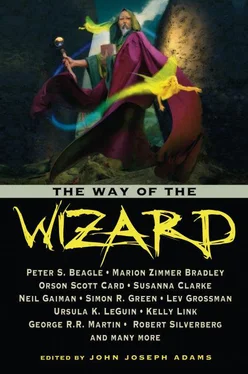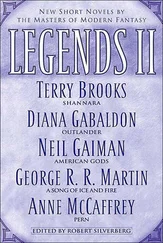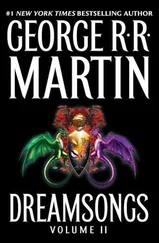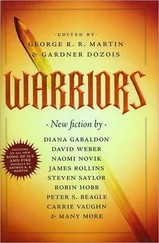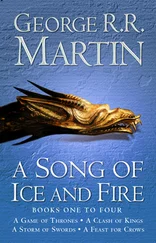“But, what he is doing is mentally exhausting. Sooner or later, he will have to sleep. That is when they will kill him. The leash will evaporate, and the animating force will have free rein to extend its activities as far as it likes. Did I mention how greedy it is for more bodies? I believe I did.”
All the talk of an apocalypse had seemed like so much hyperbole up to now, but now Constable Copeland could see the awful mechanism at play. “Won’t… won’t he stop if he gets you? Won’t he send this force back where it came from?”
Cabal had been wondering how long it would be before a cloaked version of What happens if I throw you to the zombies? was aired, and he was ready for it. “The ritual is irreversible. He either doesn’t realise that yet, or he just assumed he’d have a use for an army of the dead afterwards. As I said, the man’s an idiot.”
Copeland considered Cabal’s words. “So you’re saying, we only have a few hours before this all becomes unstoppable?”
“Exactly so.” Cabal was looking around the square through his telescope. He considered the remains of the parade in front of the town hall; he considered the hydrogen-filled cartoon characters looking cheerfully down upon the scene of carnage; he considered the undead turning away from the mortuary as presumably the search there was abandoned; he considered the church across the way. “That church has a weathervane, so at least the wretched building is good for something.”
“It has a clock, too," Copeland retorted without thinking, a feeling of guilty apostasy immediately settling upon him.
Cabal did not reply, but was looking at the bridge over the local river, just visible where the road in front of the town hall curved. “This town has a small harbour, does it not?”
“We’re at the neck of the estuary here. The sea’s less than a mile away. Why?” he said, then added a little bitterly: “Are you going to steal a boat?”
Cabal lowered the telescope and looked at him. It was an unreadable look, and Copeland had a strange sense that behind the blue-glass spectacles and behind the eyes themselves, there was something disarranged, something missing. “Perhaps I have not made my intentions clear, Constable. There is a brief period before this plague will spread, and the world as we know it is lost forever. I need that world, and I will not stand idly by or run while there is the slightest chance of preserving it.”
Copeland grimaced. “How do you make something heroic sound so selfish?”
“You cut me to the quick,” Cabal replied evenly. Then he said, “You’re a policeman. I assume that means you carry useful pieces of equipment as well as that comedic helmet we left in the morgue? A truncheon? Handcuffs? A notebook? That sort of thing?”
Copeland narrowed his eyes — he liked his helmet — but nodded.
“Excellent. Well, if it is so necessary for heroism to save the day, and given that I am such a selfish person, then by a process of deduction… ”
And Johannes Cabal smiled.
Being a mighty sorcerer was turning out to be a great deal easier than he had imagined. The hardest part of the whole plan had been tracking Cabal to this town, but after that it had been plain sailing. Admittedly, he had only intended the dead in the morgue to rise, and the resurrections in the carnival crowd had been a surprise — it seemed that the Ereshkigal Working was a more of a blunderbuss than he’d anticipated — but he had shrugged, taken it in his stride, and it all seemed to be going very well now. By allowing his consciousness to blur, he had put out a ring of drones to keep the area contained, and he was positive that it had not been breached. Now he just had to search every building within the cordon, and soon he would have his revenge. He hoped it was soon; all the extra work involved in controlling so many carcasses was astonishingly tiring.
It turned out to be even sooner than he’d expected. As he leaned on the town hall parapet and marshalled his forces to tear through shop after office, a voice spoke behind him, quiet and with a faint Teutonic accent.
“So,” it said. “You are the one behind this ham-fisted attempt on my life, are you?”
He turned to see Cabal himself, the loathed object of his every waking thought for years past, standing before him, arrogant and unconcerned. “Johannes Cabal. You should be dead by now, and one of my meat puppets.” He laughed, a very declamatory laugh of the kind normally associated with cloaks, thin moustaches, and a battered top hat. “Well, I’m glad that you have survived this long. I wouldn’t want to miss the pleasure of your final destruction!”
“I haven’t come to confront you, whoever you are. I’ve come to parlay. See?” Cabal took his switchblade from his pocket, showed it, and dropped it to the gravelled surface of the roof.
“You… don’t know who I am?” The man’s face twisted in an ugly admixture of fury and sneer. “I have hunted you for years, Cabal, and you didn’t even know it. You fool!” Ideally there would have been a crack of thunder at this point.
“ Fool is a strong term to be used by somebody who does such a thing to kill one man,” said Cabal, nodding at the crowded corpses below them.
“You don’t deserve a clean, quick death, Cabal. Not after what you have done.” The man threw out his chest and drew himself up to his admittedly impressive full height. “You murdered my father!”
“Did I?” Cabal was glad that they had arrived at some sort of conclusion, although it didn’t actually help him that much. “Oh.”
Despite his profession and his laissez-faire attitude to the mortality of others, Cabal had not actually had cause to kill very many people who hadn’t previously been dead anyway, and he doubted whether putting down an uppity revenant such as the very, very deceased Mr. Billings, to take a recent example, was technically murder at all. Then again, people often developed emotional attachments to sides of meat that had once been relatives, so who was to say that some experimental subject or another had not once been this buffoon’s father?
“Well,” Cabal continued, “obviously I’m very sorry about killing your father, whoever he was, but don’t you, whoever you are, think causing the destruction of the human race for purposes of personal revenge is at least mildly disproportionate?”
“Whoever I am?” roared the man, the perceived insult rating far more highly in his world than accidental genocide. “I am your nemesis, Johannes Cabal! I am the architect of your destruction! I am… Rufus Maleficarus!”
“Who?”
“You dare? You killed my father!”
Cabal rolled his eyes. “So you keep saying, Mr… ” And then the penny dropped. “Maleficarus… As in Maleficarus the Magnificent ? The conjuror?” He laughed. This was simply too ludicrous. “You have the wrong man, sir. I didn’t kill your father. He killed himself. Twice in fact, which shows a certain stoicism.”
Maximilian Maleficarus “the Magnificent” had been a stage illusionist with delusions of magical competence beyond the vanishing of rabbits and the sawing in half of obliging young ladies. After an encounter in his early career with the lively, if technically dead, Maleficarus senior, Cabal had walked away with a broken scapula, and Maleficarus had not walked away at all. Given that the elder Maleficarus spent a considerable time dead before resurrecting himself, it seemed unlikely that his son could have known him as more than a blurry figure from childhood.
But, in much the same way that feuds and vendettas can run for generations without troubling themselves to find a decent cassus belli , it seemed to the outraged family pride of Maleficarus junior, a planet full of undead was a small price to pay for hurt feelings.
Читать дальше
